Trong ngành công nghiệp thực phẩm và dược phẩm hiện đại, truy xuất nguồn gốc không còn là tùy chọn. Tuân thủ quy định, sự an toàn, và theo dõi chính xác nhu cầu chất lượng. Máy quét cố định hỗ trợ IoT play a pivotal role in this ecosystem. These devices enable real-time identification, monitoring, and data collection. As production lines become more automated, fixed scanners ensure seamless integration between physical operations and digital traceability systems.
Traceability reduces risks of contamination, counterfeit products, and recalls. Hơn thế nữa, it enhances brand credibility. By connecting production data to cloud systems, IoT-enabled scanners allow instant verification of product history. This transparency is crucial for consumer trust and regulatory adherence.
High-Precision Scanning: Core to Accurate Traceability
IoT-enabled fixed scanners are designed for high-precision detection. They can read barcodes, mã QR, and RFID tags with minimal error. Accuracy is critical in food and pharma, where even minor mistakes can have severe consequences.
Fixed scanners provide consistent reading without human intervention. Unlike handheld devices, they maintain optimal alignment and focus, reducing data discrepancies. Their industrial-grade sensors operate reliably under harsh conditions, such as extreme temperatures or moisture. By ensuring error-free scanning, these devices guarantee that every item is traceable from production to distribution.
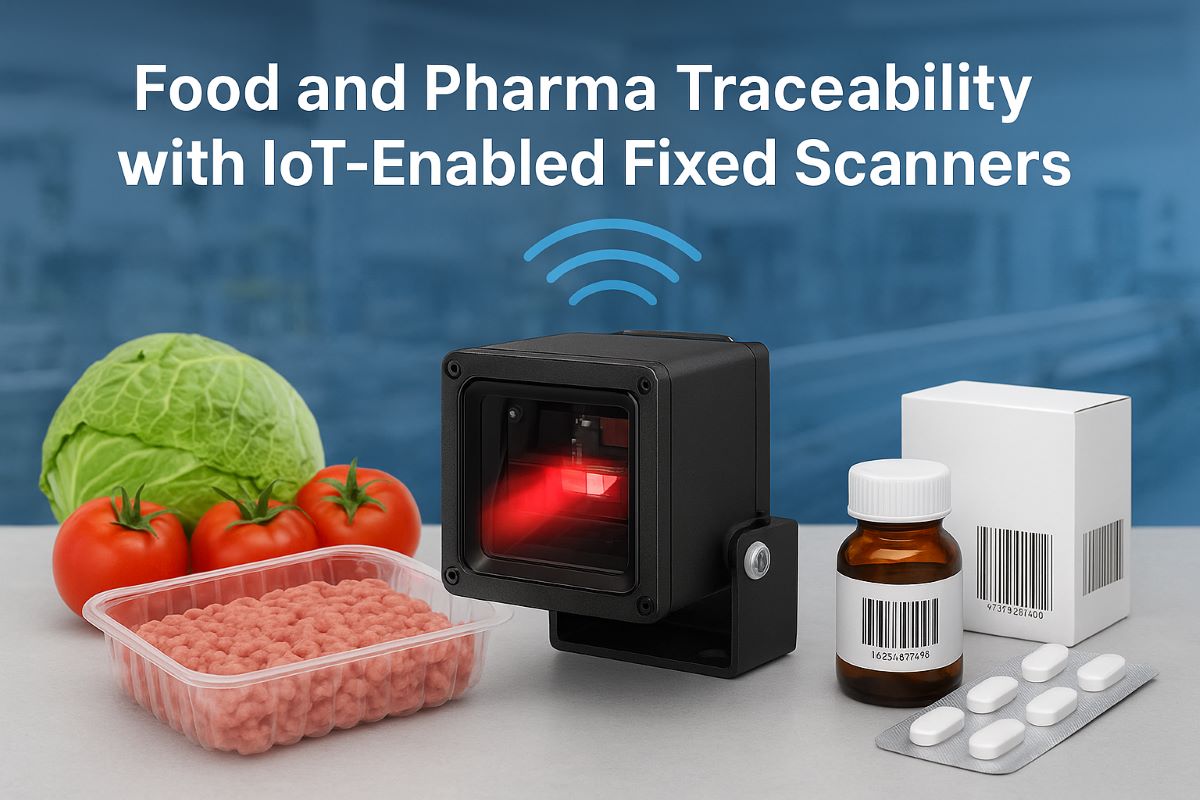
Integration with IoT Networks
Modern production facilities increasingly rely on IoT networks for data flow. Fixed scanners act as intelligent nodes within these networks. They transmit scanned data instantly to central systems, allowing real-time monitoring.
IoT integration supports predictive analytics. Manufacturers can detect anomalies before they escalate into quality issues. Ví dụ, a deviation in production speed or environmental conditions triggers alerts. This proactive approach prevents contamination and ensures product integrity.
Hơn thế nữa, IoT-enabled fixed scanners support cloud-based data storage. This enables secure, centralized record-keeping for audits or compliance checks. Companies can access historical data instantly, providing evidence of quality control.
Enhancing Food Safety with Fixed Scanners
Food safety remains a global concern. Contamination or mislabeling can cause widespread health risks. Fixed scanners provide automated verification at every stage of production.
Ví dụ, scanners can check batch numbers, expiration dates, and packaging integrity. This reduces the risk of human error in labeling or sorting. By maintaining accurate records, IoT-enabled scanners facilitate rapid recall if necessary.
Ngoài ra, fixed scanners help trace ingredient sources. From farm to factory, each component is logged. This visibility allows manufacturers to respond quickly to safety incidents, protecting consumers and minimizing financial loss.
Strengthening Pharmaceutical Compliance
Pharmaceutical products face strict regulations. Accurate traceability ensures compliance with FDA, EMA, and other authorities. Fixed scanners read serial numbers, production codes, and expiration dates at high speed.
These scanners also integrate with serialization systems. Every drug unit is uniquely identifiable, preventing counterfeit products from entering the supply chain. IoT-enabled scanners transmit data to regulatory platforms, making audits straightforward.
Hơn nữa, automated scanning reduces manual workload. This minimizes errors, improves operational efficiency, and ensures that each drug unit is verifiably compliant.
Operational Efficiency and Cost Reduction
Beyond safety and compliance, IoT-enabled fixed scanners optimize operational efficiency. Automated scanning accelerates production lines, reducing bottlenecks caused by manual verification.
Scanners provide real-time data on throughput, downtime, and error rates. This information supports better decision-making and predictive maintenance. By minimizing production interruptions, manufacturers reduce operational costs.
Hơn thế nữa, fixed scanners eliminate the need for redundant verification processes. Fewer manual checks translate into lower labor expenses and faster delivery times. This combination of speed and reliability enhances overall productivity.
Data Analytics and Traceability Insights
IoT-enabled scanners generate vast amounts of data. This information goes beyond basic traceability. Advanced analytics can identify patterns in production, distribution, and storage.
Ví dụ, data can reveal frequent scanning errors, production slowdowns, or environmental conditions affecting product quality. Manufacturers can use these insights to refine processes, reduce waste, and improve product consistency.
Hơn thế nữa, integration with AI systems allows predictive monitoring. Alerts for potential issues prevent defects before they occur. The combination of real-time scanning and intelligent analytics creates a proactive quality control ecosystem.
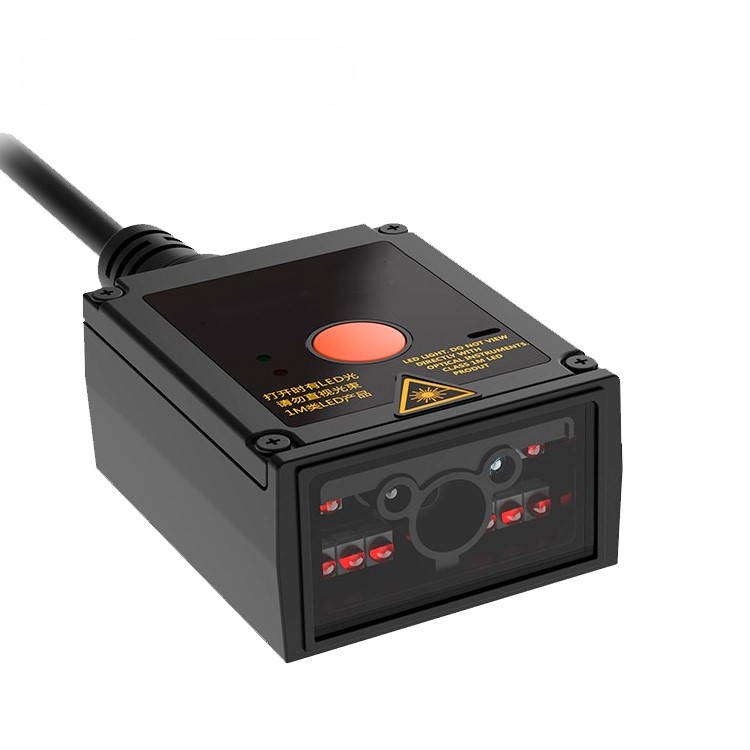 Scalability for Growing Production Needs
Scalability for Growing Production Needs
Fixed scanners offer scalable solutions. Manufacturers can deploy multiple units across production lines without significant disruption. Each scanner operates independently yet integrates into the central IoT network.
Scalability also supports multi-site operations. Data from different factories is unified, allowing centralized traceability management. This capability is vital for global food and pharmaceutical companies seeking consistent quality standards across regions.
Reliability in Harsh Environments
Food and pharma production involves challenging environments. Fixed scanners are engineered to withstand high humidity, temperature fluctuations, and frequent cleaning cycles.
Industrial-grade sensors ensure consistent performance despite environmental stress. Their durability minimizes downtime, preventing costly production halts. Hơn nữa, scanners with IP-rated protection resist dust and water intrusion. This robustness guarantees uninterrupted traceability, regardless of conditions.
Phần kết luận: Fixed Scanners as Traceability Cornerstones
In conclusion, Máy quét cố định hỗ trợ IoT are indispensable in modern food and pharmaceutical industries. They ensure accurate identification, enhance safety, and maintain compliance.
By integrating with IoT networks, these scanners provide real-time monitoring and analytics, supporting proactive quality management. Their precision, reliability, and scalability make them critical assets for manufacturers seeking operational efficiency and consumer trust.
Future innovations, including AI and blockchain integration, promise to elevate traceability standards further. For manufacturers aiming for seamless, chắc chắn, and efficient production, fixed scanners are the cornerstone of traceability systems.





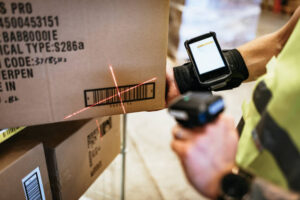
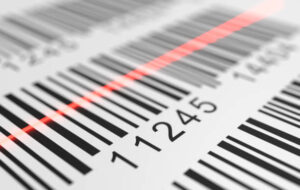
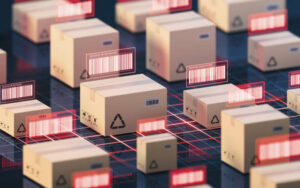
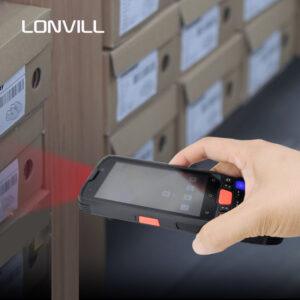
Để lại một câu trả lời